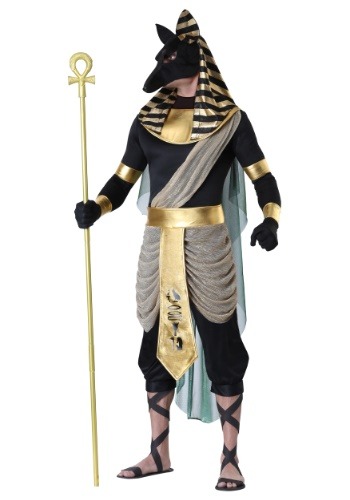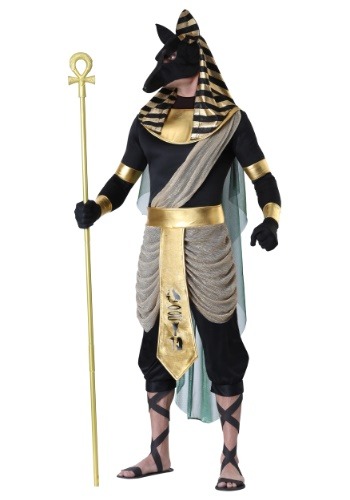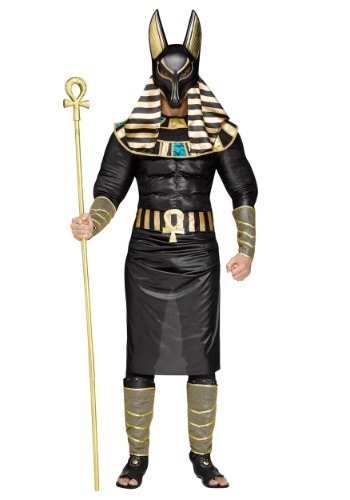Egyptian Costumes



Ancient Egypt has long fascinated later scholars. When the first Europeans began exploring north Africa they saw and marveled at the Sphinx and the Great Pyramid. By the 18th century, historians and tomb-raiders began finding many artifacts. Some of those early diggers weren't as careful as modern science could wish, and damaged or destroyed many objects. But the art, writings and architecture they found gave glimpses of some of the most intriguing figures in history. Nefertiti. Hatshepsut. Tutankhamen. Cleopatra.
At first the hieroglyphic writings were a puzzle. They were unlike any other system of writing ever known, and scholars had no way to translate them. Then, in 1799, a French soldier discovered the Rosetta Stone. The carved stone was a proclamation made in 196 BC at Memphis. It showed three versions of the same text: in hieroglyphs, in Demotic script, and in ancient Greek. Here, finally, was a translation key! Since then Egyptologists have been able to interpret most of the hieroglyphs that still exist. They can tell us a lot about how the ancient Egyptians lived.
Scholars know from their art what the ancient Egyptians wore. We carry a wide range of costumes patterned after those period illustrations, in sizes and styles for the whole family. You can become a specific historic figure, such as Cleopatra, or a generic ordinary citizen. Ancient Egyptian society was unique in its time, in that women's legal status was equal to men's. Why that was, nobody quite knows. But women could, and did, perform almost any social role. The only possible exception was in religion.
Egypt was and is a desert climate. So clothing was usually light-colored, and skimpy by modern standards. Men and women alike often went topless, especially in the lower social classes. (We don't recommend that in most situations.) They used lightweight, often sheer, fabrics such as linen and, after the time of Alexander the Great, cotton. They knew about wool, but considered animal fibers taboo so rarely used it. Wealthy people might have had a wool overcoat or cloak, but would not have been allowed to wear it into any temple or sanctuary. The linen was most often used in its natural unbleached color, though they had plant-based dyes to produce red, yellow or blue threads. They also sometimes bleached their fabric by simply laying it out in the hot sun.
If you live in an area where Halloween is likely to be cold and you plan to wear your costume outdoors, you face a challenge. If your goal is historical accuracy, you could wear a cape or cloak.
What if you want to be an Egyptian warrior--what kind of weapon should you choose? The primary weapons the ancient Egyptians used were spears and bows & arrows. They did NOT use long swords like the Romans and later peoples did. So if you're trying for historical accuracy, don't pick a sword. Some soldiers would carry a dagger or a "sicklesword" with a short, curved blade for close-in fighting. But in general they preferred to engage their foes from a distance, launching their arrows and spears from chariots. If your deepest desire is to wield a long sword, perhaps choose to be a Roman or Spartan soldier, not an Egyptian one.
But what about mummies? We can't talk about ancient Egypt without mentioning mummies! Though they're now the stuff of horror films, to the Egyptians they were sacred. In their religion, the pharaoh, some nobles and a few commoners could live on in an afterlife with the gods. The catch was, they could only do that if their bodies were preserved after death. The earliest mummies were probably accidental, but Egyptian embalmers developed elaborate methods and rituals. In addition to mummification, the body had to be buried along with food and household items to use in the afterlife. Only the wealthiest could afford to guarantee themselves an afterlife. Europe became fascinated with mummies when Napoleon's soldiers excavated the first ones in the late 1700s. The rise of Gothic fiction in the 19th century gave mummies a firm place in pop culture.
So, you can choose whether to be a straightforward historical Egyptian, or a horror-film mummy. Whatever your choice, we have a costume you'll love!

